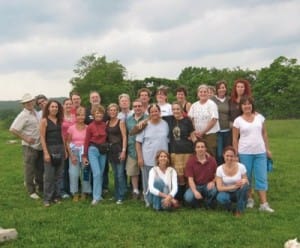“The pessimist sees difficulty in every opportunity. The optimist sees opportunity in every difficulty. ” – Winston Churchill, English statesman, orator, soldier and historian, served as Conservative Prime Minister of the United Kingdom for most of the Second World War and again from 1951-1955 (1874-1965) Imagine for a moment what would have happened if God decided it was too difficult to create the world and man. Where would we all be? Even if we don’t believe in God or a Higher Power, we can use the same line of thinking to see what kind of a box we’d create for ourselves if we find that everything is too hard to do. Great inventors like Thomas Edison and Benjamin Franklin certainly had their ups and downs, and they didn’t give up. It is often from the challenge that great opportunities arise. In other words, the solution to a problem may turn out to be much different than the immediate course of action might seem to dictate. Finding alternate solutions, paths around obstacles, very often leads us to a much better place than we had originally anticipated or could even dream of. It’s like that in recovery. If we hang a black drape in front of our eyes, everything we see before us will be dark-colored – if we can see at all. If we instead place a sheer curtain there, we can see through it fairly easily. We can position the sheers off to the side and see even better – to all the possibilities before us. While it may be easy to say that we should be more of an optimist than a pessimist, actually turning that into reality may be something altogether different. This is especially true for those of us who have had little to no experience with much of anything positive in our lives. If we grew up in an abusive and dysfunctional family devoid of love and lacking in nurturing or even basic necessities, it may be extremely difficult for us to turn abruptly to thinking of things and looking at life as a banquet awaiting us. It may be difficult, sure, but not impossible. The secret is to begin with little things. Start thinking about what it is that we want to accomplish today, those items that we’ve put on our to-do list with respect to our recovery plan of action. As with any good organization plan, we should start with the small items that are easy and quick to accomplish. Once we breeze through the first few items, such as saying our intentions for the day, having a healthy breakfast, giving our loved ones hugs and kisses, getting dressed and ready for the day’s activities, we’re already on our way in a positive and upbeat manner. When we encounter little bumps in the road, when things don’t turn out as we expected or something comes up that requires us to stop and make a decision about the best way to proceed, instead of looking at the situation as dire or doomed to failure, consider instead how we may learn something from what just happened. What is there about what’s going on that we can use to our benefit? This is the optimist seeing opportunity in any difficulty. How much better to approach our lives in sobriety this way than to picture every opportunity as a difficult endeavor?
Call for Immediate Help:1.844.876.7680

